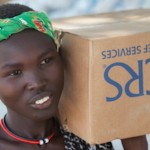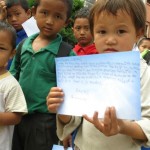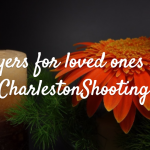Today, I continue my 100 day series remembering the twentieth anniversary of Rwandan genocide. Please join me in prayer for those lives lost and impacted in this tragedy. #NeverAgain. LMH

Today, I want to point you to a beautiful article by my friend Helen Blakesley. Helen is the CRS regional information officer for West and Central Africa. She is based in Dakar, Senegal and was a special part of my trip to Rwanda. She recently wrote the article “Rwanda 20 Years After Genocide” for Catholic Relief Services:
Forgiveness. It’s perhaps one of the most challenging of the Christian values. It’s difficult to fathom a woman turning to the man who killed her entire family and saying, “I have forgiven you.”
Yet that is what is happening in Rwanda, with the support of Catholic Relief Services.
This year marks 2 decades since the genocide of 1994. Twenty years ago, Rwanda was a country in ruins. About 1 million people were killed in just 100 days. The fighting left about 300,000 children orphaned or separated from their families and half a million women widowed (many of whom were HIV positive through rape). Three million people fled the country as refugees. Over a summer, approximately half of the Rwandan population disappeared.
Rwanda’s social and political structures were destroyed, its economy and infrastructure disintegrated. The reasons behind this crisis of catastrophic proportions are complex. Propaganda and intra-racial hatred stirred up over decades is one “explanation,” if there can ever be an explanation for such atrocities.
But as I stood on a hillside in Rugango Parish in southern Rwanda last fall, looking out to the banana fronds and the terracotta rooftops as night fell, it was hard to imagine this orderly country was once a host to chaos.











